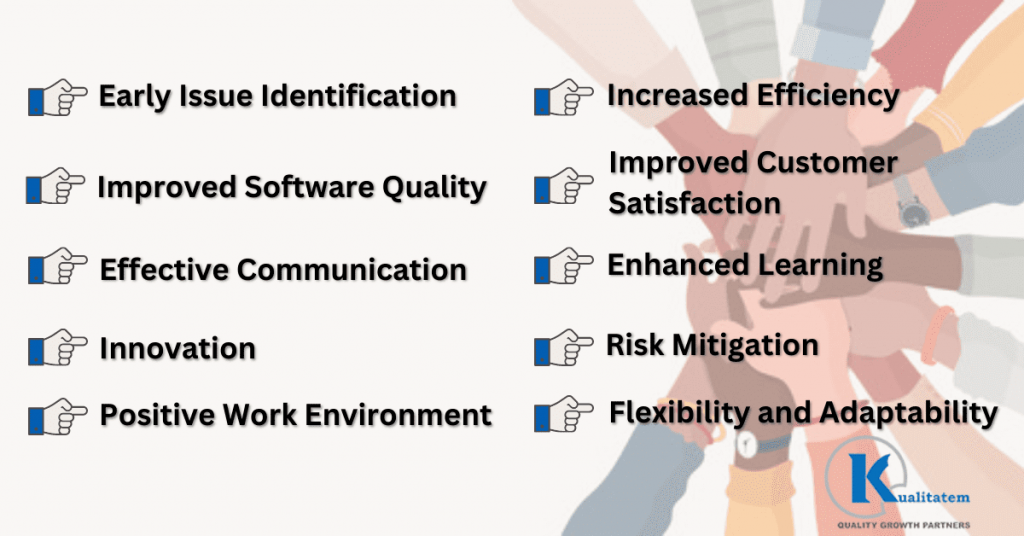The Importance of Collaboration in Software Testing Teams

- March 21, 2023
- admin
As a software engineer, I have witnessed the crucial role that collaboration plays in software testing teams. Collaboration is essential for success in today’s quick-moving and dynamic technological sector.
In this blog post, I will discuss the reasons why collaboration is so important in software testing teams and how it benefits software engineers.
Why Collaboration is so Important in Software Testing Teams and Software Engineer

Early Issue Identification
Collaboration between software engineers and testers helps identify issues earlier in the software development cycle. Together, they can spot potential problems early and deal with them before they escalate into larger concerns.
By avoiding costly rework later in the development process, you can save time and money. Moreover, this process helps in delivering a high-quality product to the end-users.
Improved Software Quality
Collaboration also helps improve the quality of software. When software engineers and testers work together, they can ensure that the software is tested thoroughly and meets the requirements of the end-user.
This could lower the number of software flaws and boost client happiness. By working together, they can create a more robust and reliable product.
Effective Communication
In addition, collaboration improves communication between software engineers and testers. These two groups can more clearly comprehend one another’s needs and priorities when they collaborate. This can lead to:
- Better teamwork
- Improved decision-making
- More efficient development process.
For example, testers can provide feedback on the usability of the software and suggest improvements that software engineers can implement to improve the software’s functionality.
Innovation
Collaboration can also lead to innovation. When software engineers and testers work together, they can share ideas and perspectives, leading to new and creative solutions to problems. This can encourage innovation in the sector and help push the envelope of what is practical. By working together, they can leverage each other’s strengths and come up with unique solutions that neither group could have thought of alone.
Positive Work Environment
Finally, collaboration can help foster a positive work environment. Together, software engineers and testers can develop mutual trust and respect for each other’s knowledge and abilities.
This will result in a happier workplace where everyone feels respected and cherished. People are more likely to be successful and happy at work when they feel respected and valued.
Increased Efficiency
Collaboration between software engineers and testers can help increase efficiency in the development process. By working together, they can eliminate redundancies and streamline processes.
This can help save time and reduce the costs associated with developing software. Collaboration can also help ensure the following:
- Development process runs smoothly
- Reducing delays and bottlenecks that can impede progress
Improved Customer Satisfaction
Collaboration can also lead to improved customer satisfaction. By working together, software engineers and testers can ensure that the software meets the needs and requirements of the end-user. This could promote:
- More client happiness
- Loyalty
- Resulting in repeat business
- Favorable word-of-mouth recommendations
Enhanced Learning
Collaboration can also provide opportunities for enhanced learning. Together, software engineers and testers can benefit from each other’s viewpoints and experiences. They could grow personally and professionally as a result of this by developing their own abilities and expertise.
Risk Mitigation
Collaboration can also help mitigate the risks associated with software development. Together, software engineers and testers can spot possible hazards and take appropriate action before they develop into significant problems. This can help reduce the risk of costly failures and reputational damage.
Flexibility and Adaptability
Collaboration can also lead to increased flexibility and adaptability in software development. By working together, software engineers and testers can respond to changing requirements and adapt to new challenges. This can help ensure that the software meets the needs of the end-user and remains relevant in a rapidly changing technological landscape.
Conclusion
Collaboration is crucial for software testing teams. It helps in identifying issues early in the development cycle, improving the quality of software, improving communication between software engineers and testers, leading to innovation, and fostering a positive work environment. As a software engineer, I firmly believe that collaboration is key to success in the technology industry.
Working together as a team and building a culture of collaboration can have a positive impact on the entire organization. It is essential to create an environment that encourages collaboration and teamwork, and it starts with creating a clear understanding of the roles and responsibilities of each team member.











